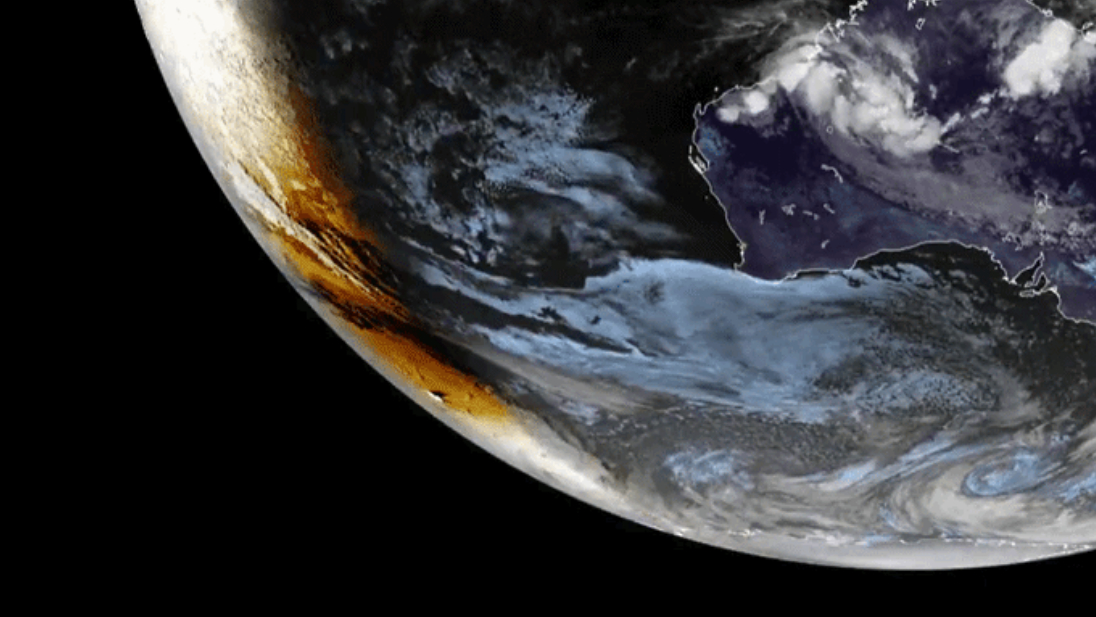NASA Chief: Discovery Shuttle Set to Fly
Breaking space news, the latest updates on rocket launches, skywatching events and more!
You are now subscribed
Your newsletter sign-up was successful
Want to add more newsletters?

Delivered daily
Daily Newsletter
Breaking space news, the latest updates on rocket launches, skywatching events and more!

Once a month
Watch This Space
Sign up to our monthly entertainment newsletter to keep up with all our coverage of the latest sci-fi and space movies, tv shows, games and books.

Once a week
Night Sky This Week
Discover this week's must-see night sky events, moon phases, and stunning astrophotos. Sign up for our skywatching newsletter and explore the universe with us!

Twice a month
Strange New Words
Space.com's Sci-Fi Reader's Club. Read a sci-fi short story every month and join a virtual community of fellow science fiction fans!
CAPECANAVERAL, Fla. - NASA's space shuttle Discovery is ready for its July 13launch and all outstanding issues have been settled, the agency's chief saidTuesday.]
NASAAdministrator Michael Griffin told reporters that mission managers forDiscovery's STS-114 flight, the agency's first shuttle launch since the 2003 Columbia disaster, closed out a few minor items leaving only weather a concern for tomorrow'sscheduled liftoff.
"We're justworking through the normal closeouts and hoping that the weather gods are kindfor tomorrow," Griffin said during a press briefing here at NASA's KennedySpace Center (KSC). "We're in good shape."
Shortlyafterward, pad engineers discovered minordamage to the orbiter and managed to repair it without affecting Discovery'slaunch countdown.
Discoveryis set to launch seven astronauts spaceward at 3:50:53 p.m. EDT (1950:53 GMT)on July 13, about seven seconds earlier than previously planned, NASA officialssaid. Weather forecasts call for a 40 percent chance that thunderstorms andrain - typical summer afternoon weather for NASA's spaceport - could preventthe orbiter from launch.
"The crewis just raring to go, and the guys who are doing all the closeout work on theorbiter at the pad are also...they're pumped," Griffin said, adding that he also metwith the families of the STS-114 astronauts and visited the Discovery orbitertoday. "We're looking forward to tomorrow, as I'm sure you are, after two and ahalf years down."
NASA'sthree remaining space shuttles have been grounded since the destruction of the Columbia orbiter and loss of its STS-107 astronaut crew on Feb. 1, 2003. That shuttle brokeapart during reentry when hot atmospheric gases entered a hole in Columbia's wing- damage caused at liftoff by a chunk of external tank foam debris. Since theaccident, NASA has worked to develop new ground and orbital tools andinspection methods to prevent similar damage for Discovery's flight and trackit in the off chance that it occurs.
Breaking space news, the latest updates on rocket launches, skywatching events and more!
"The safetychanges that we've acquired are written in other people's blood," Griffin said, adding NASA must remain vigilant in order to maintain the technical andcultural shifts the agency has made since the Columbia accident. "Whenever wesay 'it's good enough' is when we start slipping back again."
Griffin stressed that neither he nor missionmanagers are pushing to launch Discovery under time or schedule pressure,commonly referred to as "go fever."
"How do I knowwe don't have 'go fever'?" Griffin said. "Because we're working through theprocess and asking all the questions. If we can't answer them, we'll stop...it'sthat simple.
While asecond space shuttle - Atlantis - has been readied as a rescueship for the STS-114 flight, such measures cannot be maintained indefinitely, Griffin said.
"We willnot, for the long term, be able to maintain a rescue capability and still buildthe space station," Griffin said. "We cannot afford to take an orbiter out ofthe flow."
NASA hasweathered a difficult storm in its pursuit of human spaceflight, and after twoyears it is once again time to fly, Griffin said.
"We've doneeverything that we know to do," he added. "Are there things out there that wedon't know about? There may be, but we hope not."
- Fixing NASA: Complete Coverage of Space Shuttle Return to Flight

Tariq is the award-winning Editor-in-Chief of Space.com and joined the team in 2001. He covers human spaceflight, as well as skywatching and entertainment. He became Space.com's Editor-in-Chief in 2019. Before joining Space.com, Tariq was a staff reporter for The Los Angeles Times covering education and city beats in La Habra, Fullerton and Huntington Beach. He's a recipient of the 2022 Harry Kolcum Award for excellence in space reporting and the 2025 Space Pioneer Award from the National Space Society. He is an Eagle Scout and Space Camp alum with journalism degrees from the USC and NYU. You can find Tariq at Space.com and as the co-host to the This Week In Space podcast on the TWiT network. To see his latest project, you can follow Tariq on Twitter @tariqjmalik.
